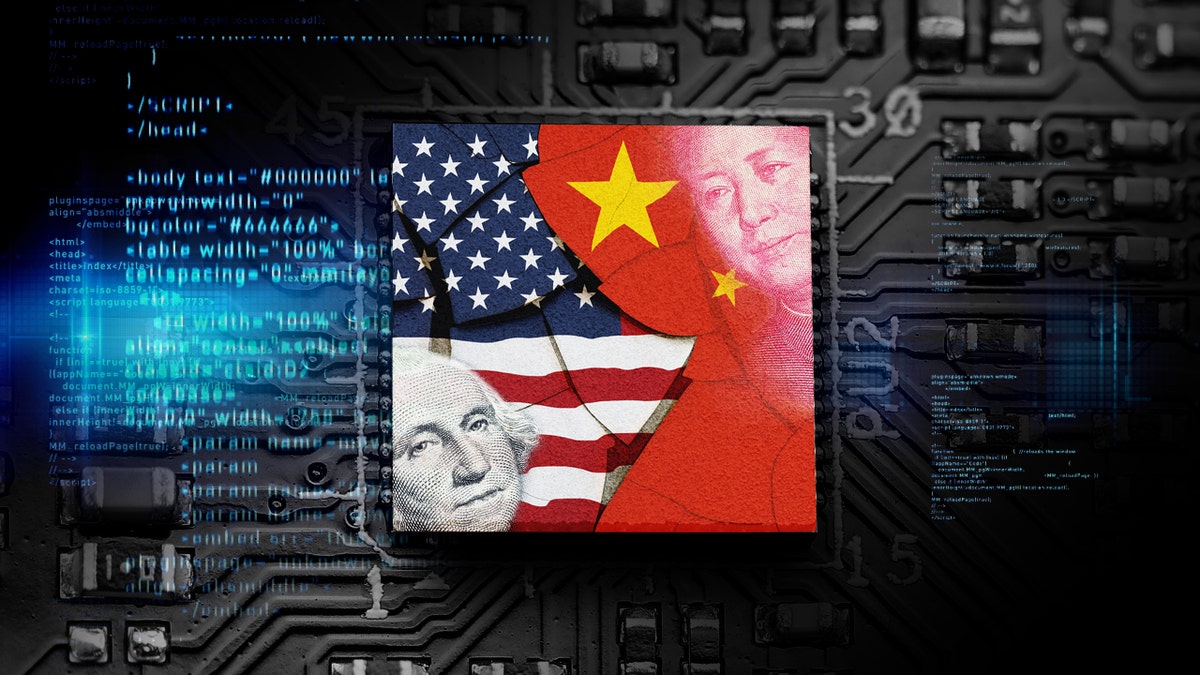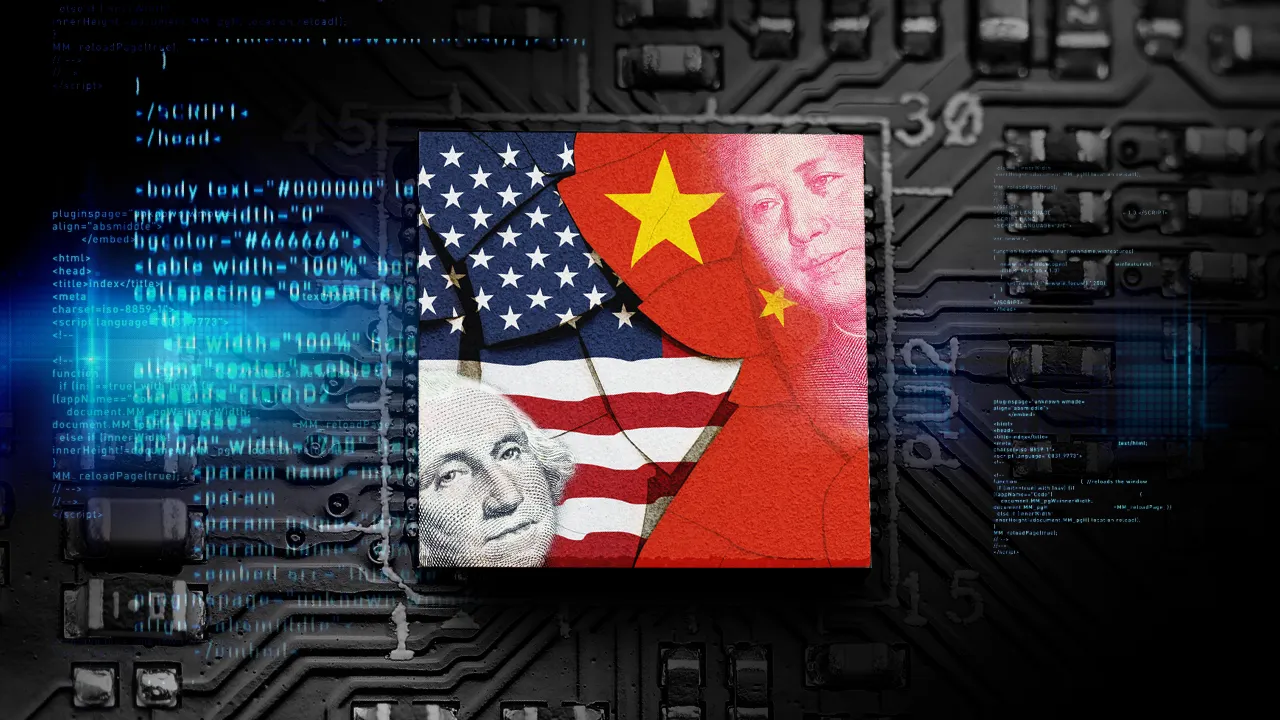US needs better internet infrastructure networks to beat China in AI race
NEWYou can now listen to Fox News articles!
The United States must win the global race for AI domination against China. Our success depends on thriving innovation and robust investment – two integral pieces of our national battle plan.
But the third component of victory can’t be overlooked: The U.S. urgently needs even better internet infrastructure. If we don’t extend our advantage in 21st-century connectivity, we will lose the fight for global AI leadership.
At this very moment, leaders in D.C. are debating the best approach to AI regulation. On the other side of the country, Silicon Valley is chasing the next breakthrough AI model. But even as the U.S. does both of those things, Beijing is playing a different game.

The Chinese Communist Party understands that AI supremacy depends on leveraging a national approach to building the infrastructure and connectivity required to develop and deploy advanced AI systems. (Getty Images)
The Chinese Communist Party understands that AI supremacy depends not only on data and algorithms, but on leveraging a national approach to building the infrastructure and connectivity required to develop and deploy advanced AI systems. It is building internet infrastructure to leapfrog the U.S.
TRUMP’S AI PLAN IS A BULWARK AGAINST THE RISING THREAT FROM CHINA
For instance, China is challenging America’s long-standing leadership in Wi-Fi innovation by pushing its domestic standards internationally and directing resources into homegrown wireless technologies, both to the detriment of U.S. standards and technology, which have long led the way in Wi-Fi.
Wi-Fi matters because it’s the primary technology consumers use to access AI on their devices. The ability to move, process and deliver data at a large scale is the backbone of AI. Every generative AI query, self-driving vehicle and factory robot depends on light speed and reliable connectivity. If China takes the lead on any kind of internet infrastructure, it will soon take the lead on AI, too.
The good news is that the American cable industry has made significant progress in building broadband networks that offer the scale to meet this moment, with 87% already offering gigabit speeds, and even more powerful capabilities on the horizon. Over the past two decades, $340 billion in private capital has been invested to build these powerful networks, generating $568.7 billion in economic output in 2024 alone and supporting more than 1.3 million jobs nationwide.
CHINA’S MALIGN INFLUENCE TOUCHES EVERY ASPECT OF US LIFE. WE ALL NEED TO HELP STOP THEM
These infrastructure investments matter – but they must also be matched by commitment from government, as part of a national strategy to extend U.S. internet leadership. Such a strategy isn’t just crucial to AI’s future use and reliability; it would also amplify the economic impact that such infrastructure has. In California alone, cable infrastructure supports 209,000 jobs and drives $117 billion in state economic impact. Texas and Florida each sustain more than 100,000 cable-related jobs.
This is what national strength looks like: private capital fueling the public good. And with a national strategy for internet infrastructure, that good could be multiplied on a massive scale.
During a recent tech policy conversation I had with Rep. Brett Guthrie, the House Energy and Commerce Committee chair, he framed the choice starkly: “We’re not competing with Europe to regulate, we’re competing with China to innovate.” He’s right. Europe’s overregulation has already left them out of the AI race. The U.S. is still in the race, and if we hope to win it, we must continue to innovate and expand our internet infrastructure.
AMERICA MUST WIN THE AI RACE – AND PREPARE FOR THE WORST
Now is the time to leverage America’s strengths, doubling down on Wi-Fi capacity, broadband connectivity and the infrastructure that makes them possible. For years, and because of far-sighted national policies, Wi-Fi has been the internet’s workhorse, handling the vast majority of all internet traffic and linking our homes, offices, schools and factories.
It’s also a uniquely American success story – one rooted in the value of permissionless innovation and rules that support the freedom to access public airwaves. Imagine if the federal government made that story even more successful by further expanding access to Wi-Fi. China wouldn’t have a chance in the AI fight.
Winning the AI race will require focus and urgency. As soon as possible, leaders in D.C. should create a national framework for broadband policy, replacing the current state-by-state regulatory minefield that holds back the infrastructure America needs.
CLICK HERE FOR MORE FOX NEWS OPINION
We also need a better national policy on unlicensed spectrum – the radio frequencies that undergird Wi-Fi – to ensure our country’s continued Wi-Fi leadership. And we must maintain federal incentives that fuel private investment in internet infrastructure to meet AI’s massive data demands.
If we get this right, the United States won’t just compete in the AI era – we’ll indisputably lead it and leave China in the dust. The same networks connecting Americans today will secure our economic success, our technological leadership and our national future tomorrow.
CLICK HERE TO GET THE FOX NEWS APP
Source link
editor's pick
latest video
Sports News To You
Subscribe to receive daily sports scores, hot takes, and breaking news!




